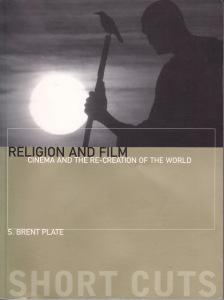 Scholars employed by the academy sometimes fall under its privileged bubble. In that rarified space, the classics, the Bible, and even serious contemporary literature can be parsed and prodded until it’s no longer recognized and everyone thinks it’s normal. Out on the streets (for some of us taste the outer darkness) people have a difficult time with such minute attention to detail. People like movies. They’re visual, colorful, and they meet deep human needs. Scholars were slow to take cinema seriously, though. It was one of those passing things. Ephemeral. Shadows flickering on a screen. Never mind that the budget for a single Hollywood blockbuster could finance an entire humanities department for years. This is a strange dynamic when you stop to think about it.
Scholars employed by the academy sometimes fall under its privileged bubble. In that rarified space, the classics, the Bible, and even serious contemporary literature can be parsed and prodded until it’s no longer recognized and everyone thinks it’s normal. Out on the streets (for some of us taste the outer darkness) people have a difficult time with such minute attention to detail. People like movies. They’re visual, colorful, and they meet deep human needs. Scholars were slow to take cinema seriously, though. It was one of those passing things. Ephemeral. Shadows flickering on a screen. Never mind that the budget for a single Hollywood blockbuster could finance an entire humanities department for years. This is a strange dynamic when you stop to think about it.
S. Brent Plate, in his book Religion and Film: Cinema and the Re-creation of the World, addresses in a very intelligent way, how film is like religion. Of course, religion is often on the university chopping block these days, so it is perhaps no surprise that among the first academics to pay serious attention to movies in their discipline were religion scholars. What is truly surprising is the depth of that connection between movies and belief. For such a brief book, Plate dives deep and quickly. In a society that seems to have outlived its need for structured religion, movies have managed to hold on through recessions and depressions and terrorist attacks. Indeed, they often provide meaning during those very times. They have a ritual form that meets the kinds of needs religion has traditionally filled. Movies are well worth the time we spend getting to know them.
Sometimes, under the barrage of rhetoric that says all answers are physical, we forget that humans are meaning-seeking creatures. If there’s no purpose to life, our wellbeing suffers. Nobody looking at modern civilization objectively would say that we’re an overwhelmingly happy bunch. One way to understand the popularity of movies is to see them as venues of finding meaning. For 90 minutes to 2 hours we’re shown some version of modern mythology (at least in some cases) that serves many of the same functions as a sermon or scripture. Although Plate hyphenates the word, it is worth pondering that this is for more than mere recreation. The Sabbath idea always involved more than just a day off work. Movies offer us a way toward meaning. So naturally, the academy tends to ignore them. There are, it seems, more important things to do.
